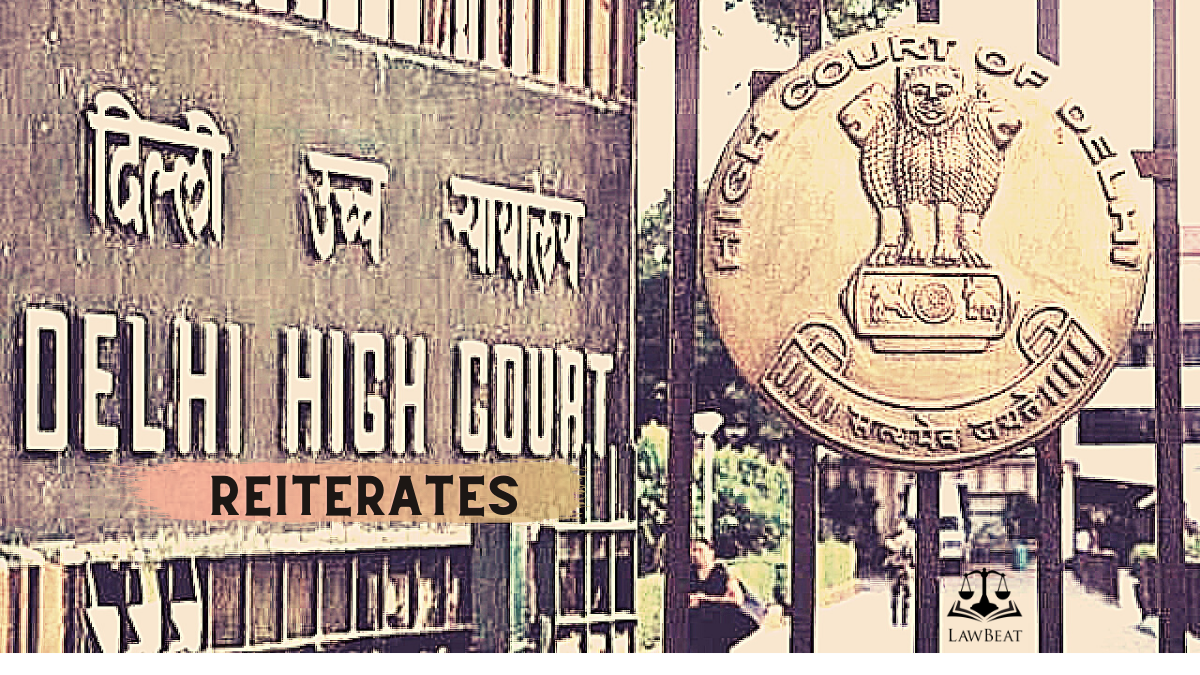High Courts Exercise Writ Jurisdiction Over Arbitral Tribunal; Objections Of Jurisdiction To Be Decided Prior To Inception & Passing Of Final Award: Delhi high Court

The Delhi High Court has recently held in a challenge to the jurisdiction of an arbitral tribunal that jurisdictional objections by their very nature are one to be raised at the inception of t he tribunal itself.
The Single Judge Bench of Justice Pratibha M Singh noted that the arbitral process can be interfered under Art 226/227 in “exceptional circumstances”.
“A jurisdictional objection by its very nature would be one which has to be raised at the inception itself. The statute contemplates that the party raising the objection has to raise it with alacrity and hence by an overall reading of Section 16 and especially Section 16(5) of the Act, there is no doubt that the Tribunal also ought to decide the objection with a sense of urgency. Such dispensation would be favoured especially in order to ensure that parties to whom the arbitral proceedings may not even be applicable are not entangled to long drawn arbitral proceedings with substantial costs being incurred. Moreover, in order to maintain the efficiency of the arbitral system, it is necessary that only those parties to whom the arbitral Clause is applicable contractually are obliged to arbitrate," the Bench observed.
In the present matter, the Court was hearing an appeal against the order dated July 8, 2019 by which the Arbitrator observed that an objection as to jurisdiction would be decided along with the final award while dismissing the appellant’s application challenging the arbitration proceedings, on the ground that the Arbitral Tribunal has no jurisdiction to entertain any claims against the appellant.
The issues that arose for consideration were whether arbitral tribunals are tribunals over which jurisdiction under Art. 226/227 is exercisable by High Courts and what is the scope of interference & Law governing applications under Section 16 of the Arbitration & Conciliation Act, 1996 (“Act”) and manner of consideration by arbitral tribunals. The Court also went on to answer the stage at which such objections can be raised before an arbitral tribunal.
Concerning the issue of maintainability, the Bench relied on UOI v. R Gandhi, President Madras Bar Association (2010) 11 SCC 1 and SREI Infrastructure Finance Limited v. Tuff Drilling Private Limited (2018) 11 SCC 470 to observe that a petition under Art 227 challenging the orders of an Arbitral Tribunal is maintainable as arbitral tribunals are private tribunals unlike those tribunals set up under the statute or specialized tribunals under the Constitution of India.
“The arbitral tribunal is a tribunal over which writ jurisdiction can be exercised, the said interference by a writ court is limited in nature," the Court observed in regards to the scope of interference under Art 226/Art 227 against the orders passed by the Arbitral Tribunals.
Further, reliance was placed on McDermott International Inc. v. Burn Standard Co. Ltd. And Ors. (2006) 11 SCC 181;Raj International v. Tripura Jute Mills Ltd 2008 SCC Online Gau 333; Shri Pankaj Arora v. AVV Hospitality [O.M.P.(T) (COMM.) 32/2020 decided on 20th July, 2020; Glencore International AG v. Indian Potash Limited and Another 2019 SCC Online Del 9591 to opine that the scheme of Section 16 of the Act envisages that the issues related to jurisdiction should be raised at the earliest before the Arbitral Tribunal before submitting the statement of defence.
“As per McDermott International Inc. v. Burn Standard Co. Ltd. And Ors. (2006) 11 SCC 181, the jurisdictional question is to be decided as a preliminary ground. This obviously means that the objection has to be decided at the earliest. However, there cannot be a hard and fast rule. Depending on the facts and circumstances of each case, the Tribunal ought to decide the objection under Section 16 of the Act as soon as possible, as a preliminary ground," the Bench further remarked.
Case Title: Surender Kumar Singhal & Ors. V. Arun Kumar Bhalotia & Ors
